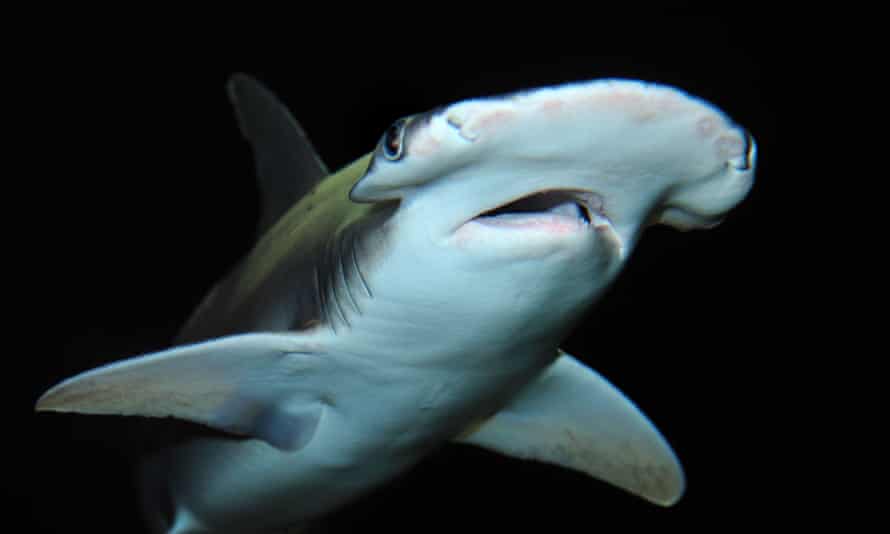Sharks fleeing toxic red tide take refuge in Florida canal
Lemon, blacktip, bonnethead and nurse sharks retreat from sea as state struggles to contain pollution problem

Hundreds of coastal sharks have taken refuge in a Florida canal, apparently to escape the effects of a toxic red tide outbreak killing hundreds of tons of marine animals.
Residents of Buttonwood Harbor, on Longboat Key, recorded unusual footage of bonnethead, blacktip, nurse and lemon sharks swimming close to their homes.
Florida has been battling outbreaks of red tide, caused by the algae Karenia brevis, for several years. This year’s blooms have been particularly significant, marine biologists say. The Florida Fish and Wildlife Commission (FFWC) reported fish kills over the last week in nine counties and said five counties generated complaints of respiratory distress in humans connected to red tide.
The FFWC has reported high levels of red tide off Longboat Key and around Sarasota. Experts say the sharks are seeking a safe haven with food and oxygen, away from polluted water and rotting carcasses.
“You just don’t normally see sharks piling up like that in these canals, they do go in there but not in the huge numbers that we’re seeing reported,” said Mike Heithaus, a shark expert and biological sciences professor at Florida International University, and dean of its college of arts, sciences and education.
“We don’t know what the trigger might be for those sharks going to those areas, but the changes in the chemistry of the water, the oxygen being pulled out of the water, the toxins, combined with the amount of dead fish around, any of those could cause these big concentrations.
“It’s not the kind of thing that you would see if it wasn’t a big red tide event.”
Longboat Key is a few miles from the site of a breach at the abandoned Piney Point fertilizer plant in April that saw tens of millions of gallons of toxic discharge pumped into Tampa Bay. It is not known what impact the discharge might have had on the red tide outbreak.
Heithaus said the distressed sharks highlighted a need for action.
“Seeing these kinds of things happen just shows how out of balance things are in the ecosystem right now,” he said.
“We really need to start working very hard in Florida on addressing some of the causes of these blooms, too much nutrient getting into the water, and that can come from lots of different sources, so we really need to be working on all of it.”
In 2019, Ron DeSantis, Florida’s governor, reactivated an algal bloom taskforce to examine issues related to red tide.
Whether the Longboat Key sharks survive depends on factors including oxygen levels in the canals, which can deteriorate quickly as water heats up.
“If the conditions are really bad outside that canal, they might be stuck until the conditions get to the point where there’s enough oxygen or there aren’t toxins if they were to leave the canals,” Heithaus said.
“But at the same time, if those conditions go south in the canal there’s nowhere left to run. They can’t run if it’s not safe outside so it’s really hard to say.”